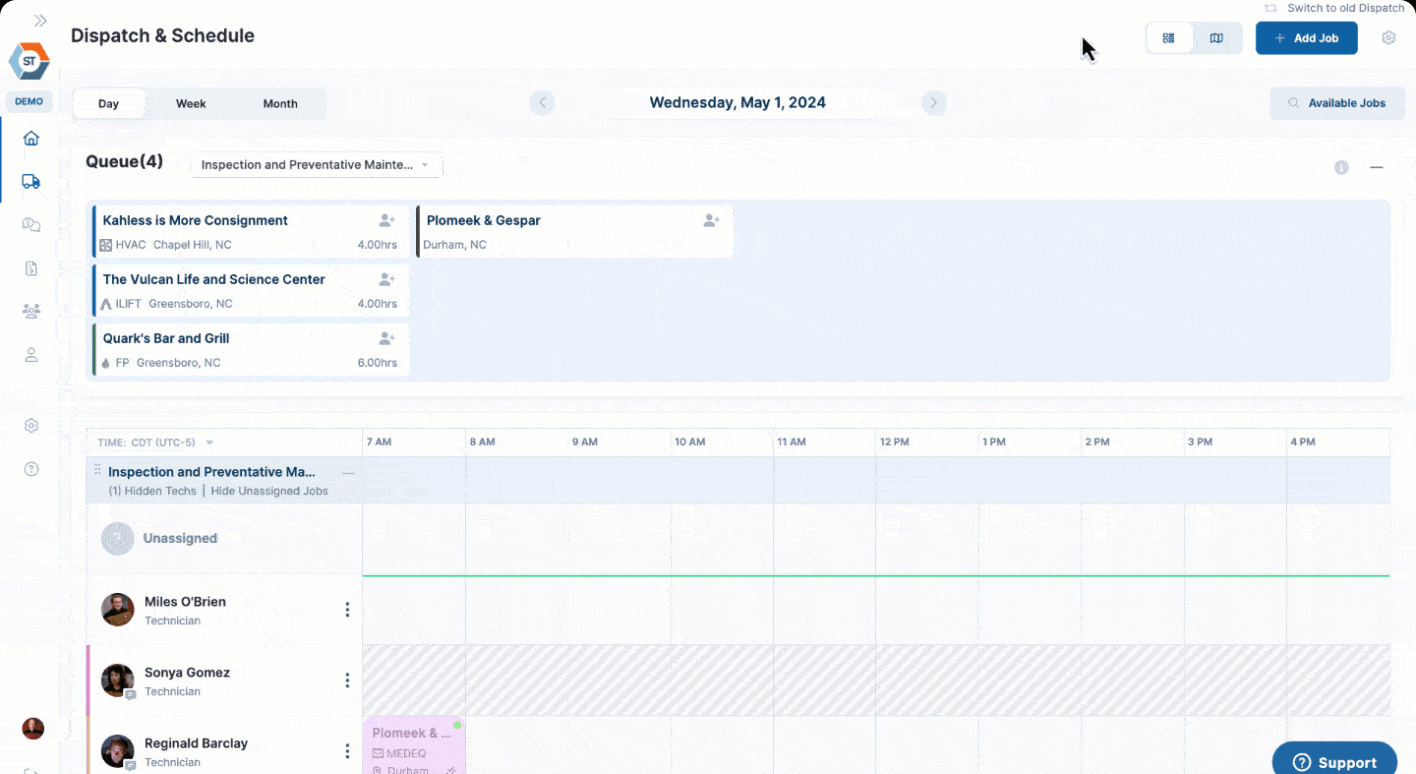You know it’s time. You need to purchase software to help streamline your services department. Up until this point, your accounting software has been your biggest investment in technology to run your business.
As tempting as it is to throw away your current system in search for the perfect all-in-one (a mythical unicorn if you ask us), transitioning away from your existing core financial system is risky. On top of that, why change what works for your construction division and back office just to solve the problems in your service department?
While an all-in-one is not the answer, you also know you can’t afford to adopt service management software that doesn’t work with your company’s accounting system.
What are Your Options?
Given that 1) you want to stick with your current accounting system, and 2) you need service management software that works well with this system, you have two options:
- An add-on service module to your accounting system
- A stand-alone application that integrates with your accounting system
Option 1: Add-on Service Module
Most construction-focused accounting programs have attempted to solve the service management pain point for their customers with an add-on module that talks to the core accounting system. Examples include Sage Service Operations (SSO) as an add-on to Sage 100/300, and FieldEase as an add-on to ComputerEase.
But these add-ons are designed with your accounting system (and ONLY your accounting system) in mind. These modules help gather the relevant accounting information, but how else are they benefiting your company and your customers? More on this below.
Option 2: Stand-alone Application
Integrations may vary depending on what’s possible with your accounting system. Look for a page like this on the application’s website. Integrations with server-based systems require more of an investment than integrations with cloud-based software. You’ll want to ensure the company offering the application has made that investment and knows their stuff. You can address this in the evaluation process during your demo. After the demo, ask for referrals from customers who use your accounting software, so you can hear directly from them how the application works with your current systems.
5 Questions to Help Evaluate Options
Let’s start with the most essential question – one you need to answer for yourself before speaking with vendors.
Question #1: Who Drives the Decision?
Up until this point, your accounting department has likely led the way on technology decisions because they hold the keys to what has been the most important software system in your business. But prioritizing the needs of accounting above all others when selecting a service management application is a common trap for commercial service contractors.
The good news is you can adopt service management software that keeps your accounting department happy, while also prioritizing the needs of your customers – the group of people whose needs must be driving your decision.
Make Your Customers Your North Star
You are operating in a market that is more competitive than ever. You have new competitors that are undercutting you on price, you are finding it more difficult to hire and retain good techs, and your customers are demanding more information, transparency, and convenience.
These customer expectations will only grow. Look at what companies in other industries did to leave the competition in the dust, or worse, put them out of business:
- What Amazon did to Walmart (and bookstores before that)
- What Netflix did to Blockbuster
- What iTunes did to record stores
- What Uber did to taxi companies
The success of each of these market leaders is in large part due to their relentless focus on meeting customers’ needs and exceeding expectations by delivering an unparalleled customer experience. It’s time commercial service contractors adopt the same approach. A strong service management application will help you do so.
Accounting needs relevant information from service management software so they can deliver an accurate invoice to the customer. But is that all your customers need? Of course not.
Your customers need to know what your techs found on the service call – risks to their business, their severity, and how the customer should address those risks. A strong service management application will empower your techs with tools to collect this information and deliver it to customers quickly and conveniently, which builds trust and generates additional revenue for your business.
Avoid Costly Mistakes – Get Started
So you’re ready to invest in software to improve service management but you need it to work with your current accounting system. You know your decision must be guided by the needs of your customers, not the needs of accounting.
What other questions should you ask when evaluating your options?
To help you along, we’ve developed a simple, straightforward resource for those involved in the software purchasing process for commercial service contracting companies. If your company is ready to take a customer-centric approach to service management software adoption, then it’s time to talk to ServiceTrade.

